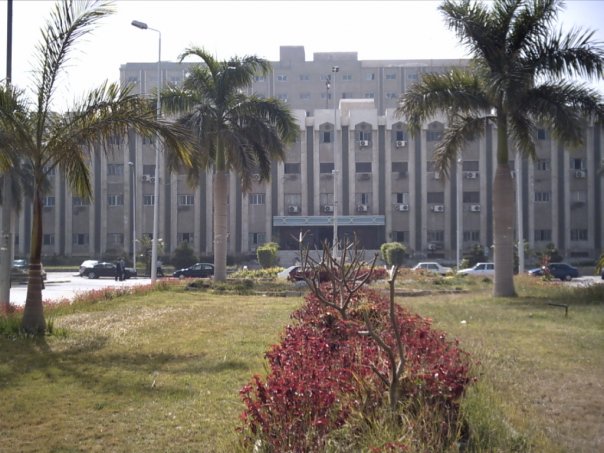CAIRO: The decision to halt the live broadcast of the trial of ousted president Hosni Mubarak left legal experts divided, some hailing it as a necessity and others condemning it.
After joining Mubarak’s case to that of former interior minister Habib El-Adly, presiding judge Ahmed Refaat announced that the trial will no longer be aired live, citing “the public good”.
“This is a very negative indication,” Justice Noha Al-Zeiny told Daily News Egypt, explaining that the decision would fuel doubts about the integrity of the trial and consequently ignite protests.
“The fact that the people could see the trial live on TV calmed them down and eliminated any previous doubts they had about the judiciary,” she added.
However, lawyer Ahmed Ragheb, head of Hisham Mubarak Law Center, told DNE that the trial shouldn’t be broadcast during the witnesses’ testimonies.
“This is to prevent witnesses from being influenced by each others’ testimonies,” he explained.
The court, however, stated that the live broadcast would be halted throughout the trial, not only during the testimonies.
El-Zeiny speculated that the court’s decision was influenced by some lawyers who seek media attention and recognition, which leads to the disruption of the proceedings.
On Monday, the session was delayed as lawyers representing civil rights claimants quarreled, refusing to sit down despite pleas by court officials. Judge Refaat said this disorder prevented the court from holding daily hearings.
El-Zeiny explained that the Supreme Judicial Council’s recommendation to make the trial public was not binding and that the final decision was left to the judge.
On his part, lawyer Ihab Ramzy, representing security chief Osama El-Marasy who is being tried alongside Al-Adly, said that the court’s decision benefited the defendants and guaranteed that the trial and the court would not be influenced by the media frenzy surrounding the case.
He added, however, that the decision increased the gap between the people and the judiciary and created an atmosphere of mistrust.
Ramzy proposed allowing the broadcast of the trial in the large screen set up in the police academy’s yard outside the courtroom, so a number of people can view it and spread the word.
Samir Helmy, a lawyer volunteering for the prosecution, voiced a different opinion.
“The lawyers will attend the trial and they will inform the people and the media if any violations take place,” he said.
He added that all civil rights lawyers were pleased with the court’s “sound and legal” decision which served the case.
“The people have already guaranteed that Mubarak and his sons have appeared in the dock like other defendants,” he said. “This should be enough.”
Judge Refaat added Mubarak’s case on charges of killing protesters, to that of El-Adly.
El-Adly and six security chiefs are facing charges of ordering the killing of protesters.
Legal experts unanimously welcomed the decision as “logical”, since the defendants, evidence and witnesses are the same in both cases.
“This will allow the trials to move along quickly and smoothly,” Ramzy said, adding that it didn’t make sense to summon the same witnesses once in Mubarak’s trial and another in El-Adly’s.
Along with his two sons Alaa and Gamal, Mubarak is also facing corruption charges, but lawyer Sameh Ashour has requested that this case be separated from the murder case.
"There should be a separation between the accusations in the gas deal and the killing of the protesters, since we fear that a verdict would be issued in one case only while the other is not," Ashour told the court.
The prosecutor’s charge sheet that accused Mubarak of murder also included corruption charges relating to facilitating the acquisition of land in South Sinai and exporting gas to Israel at reduced prices to benefit businessman Hussein Salem, who is being tried in absentia.
Judge Ahmed Mekky, however, said that it was not necessary to separate the charges into two case.
“The priority in the charges will be the killing of protesters, which will take most of the attention and examination by the court, then the corruption charges will follow,” Mekky explained.
Ashour also requested adding more charges to the gas deal case to guarantee the fairness of the trial, expressing fear that Israel might resort to international arbitration if the court invalidates the deal.
Ashour requested adding the Israeli Prime Minister who negotiated the deal with Egypt to the list of defendants charged with harming Egypt’s economic interests.
He added that executing this demand would help Egypt renegotiate the gas deal with Israel.
“These demands are more for the media than they are for legal reasons,” El-Zeiny said.
Ragheb pointed out that the Israeli Prime Minister wasn’t responsible for the corruption of the officials which led to drawing such a contract that harmed Egypt’s economy.
Aside from court decisions, many were concerned with the appearance of Mubarak.
Rolled in on a stretcher, the ousted president was no wearing the white prison suit, customary for defendants, fueling ongoing concerns that he is receiving special treatment.
Mekky explained that any prisoner detained temporarily pending a trial is allowed to wear his own clothes if he receives permission from the prison warden. He can even put on a suit.
“A prisoner is innocent until proven guilty,” Mekky said. “He can wear whatever he wants.”
Ramzy said Mubarak didn’t have to wear the white prison suit as long as he is hospitalized.
The former President was moved to the International Medical Center on the Cairo-Ismailia Road following the first hearing on Aug. 3 due to his medical condition.
Ragheb, however, echoed the same criticism circulating on social media networks.
“According to the law, Mubarak should wear a white prison suit like everyone else,” he said. “The interior ministry which handles the prisons should be asked about this, not the court.”



